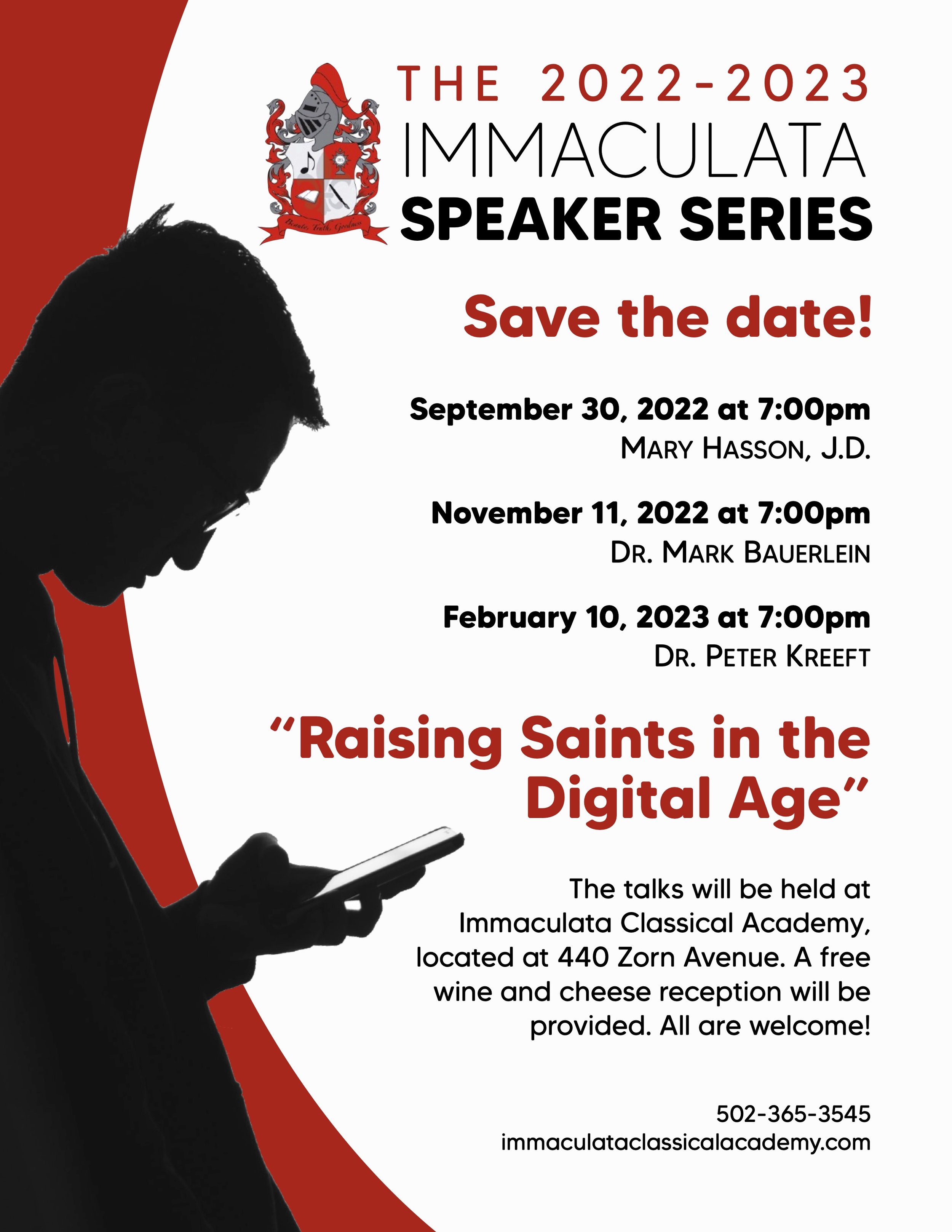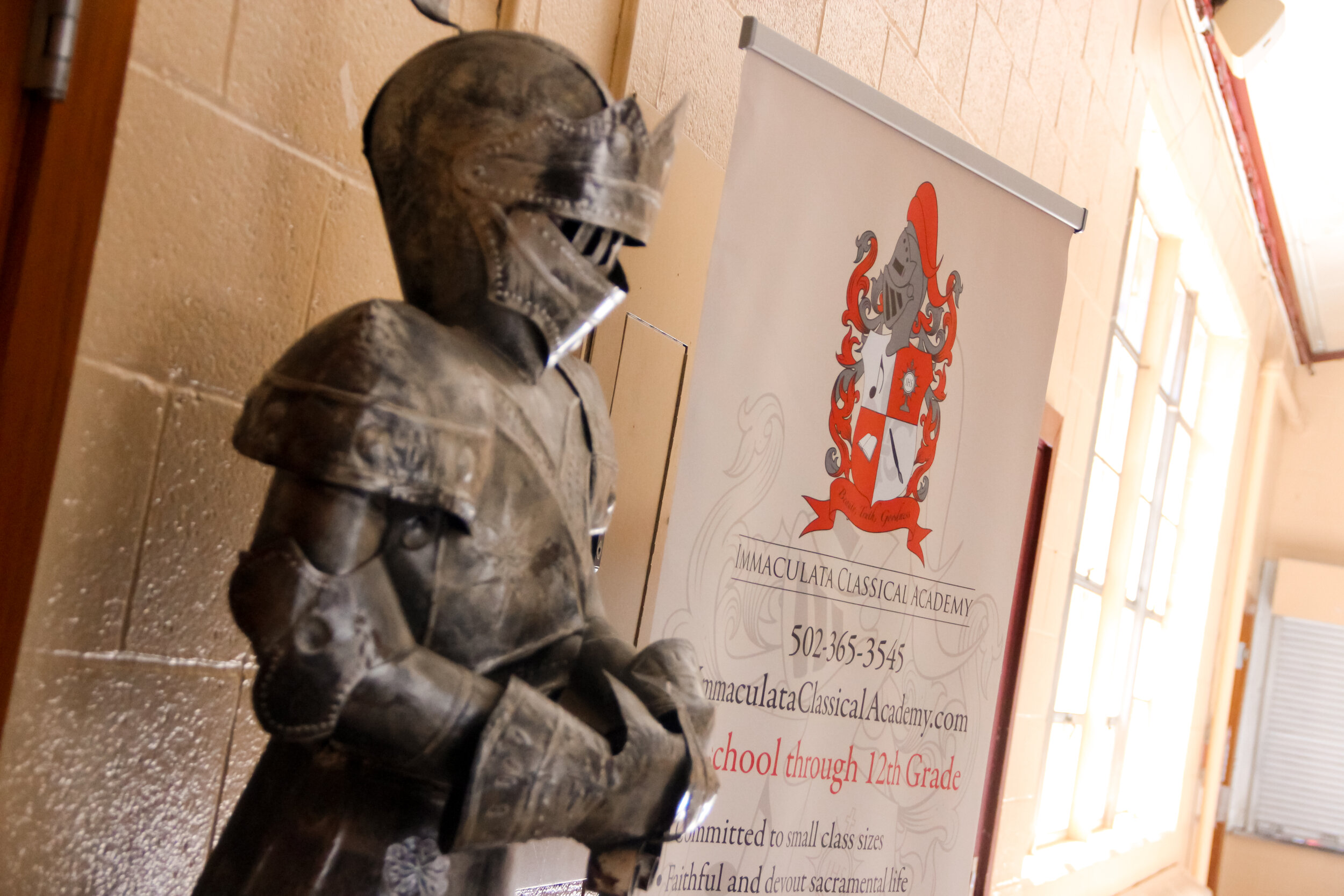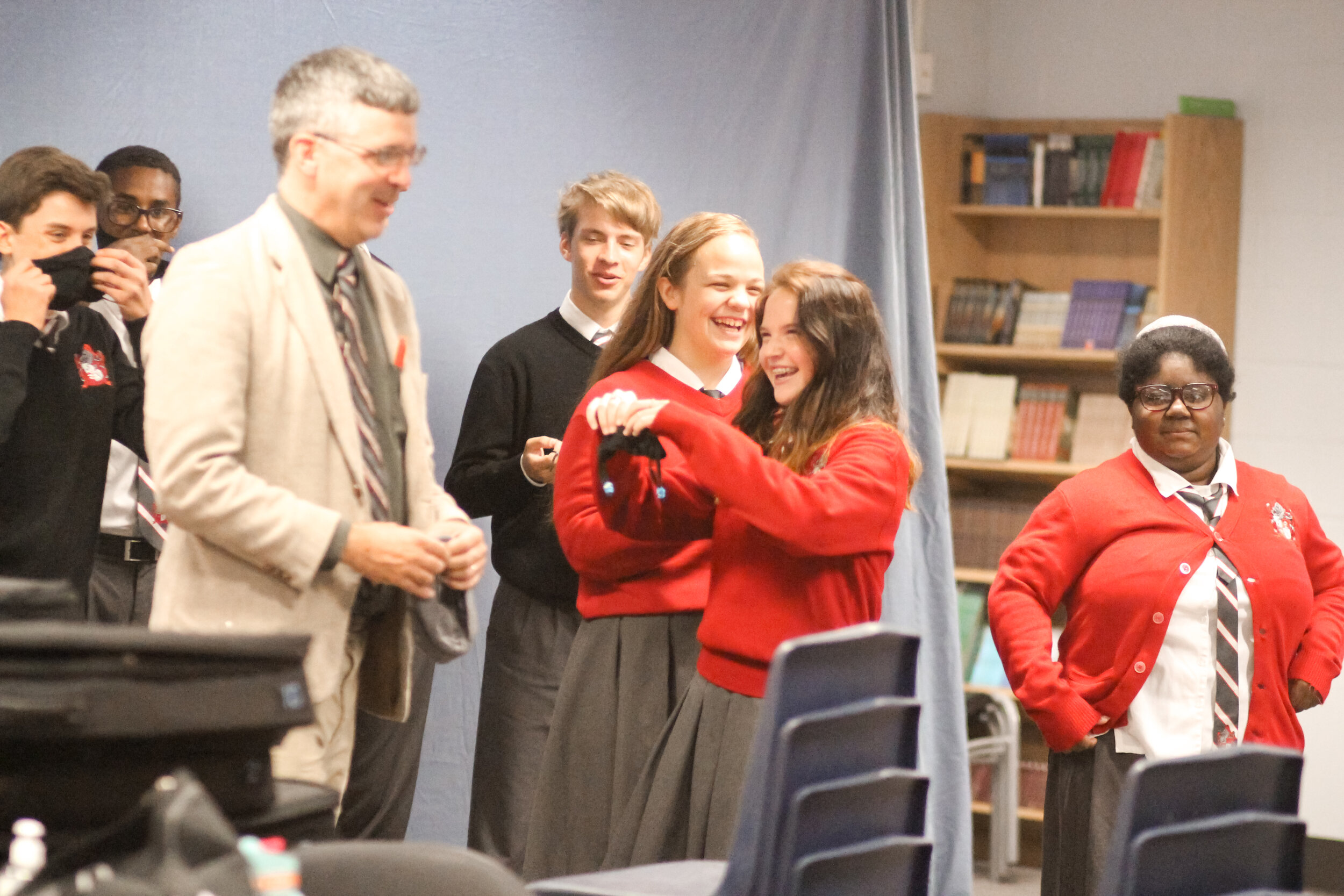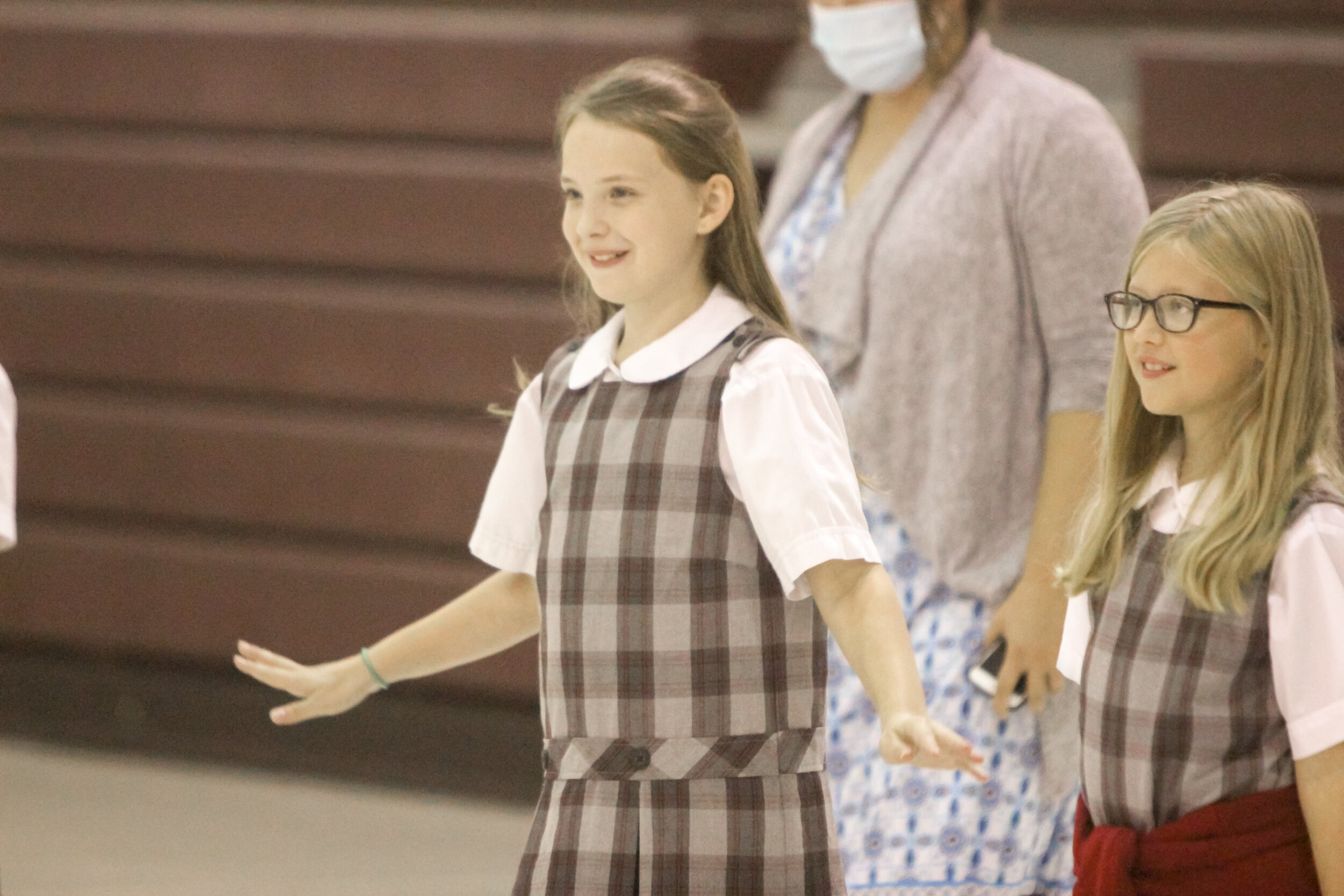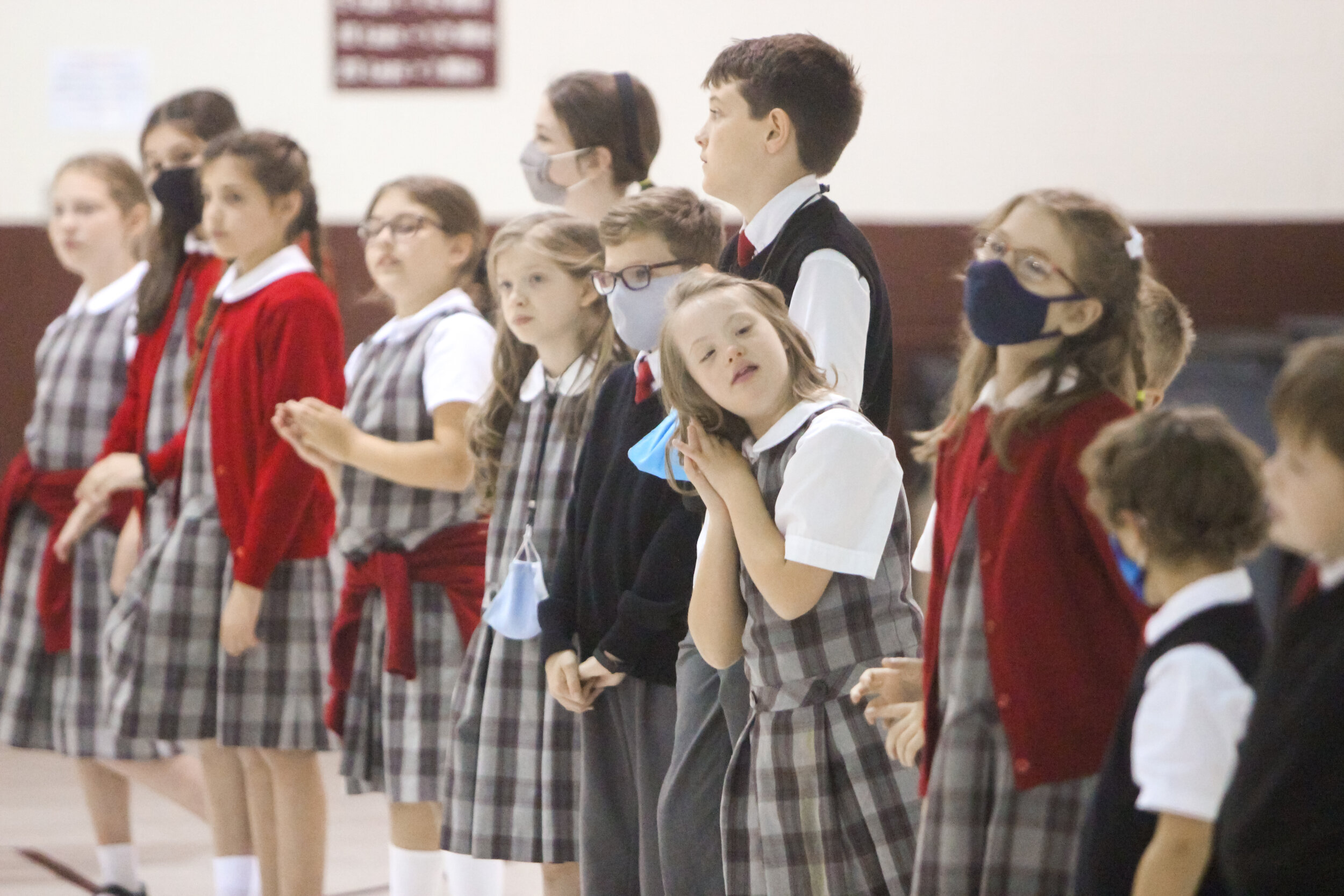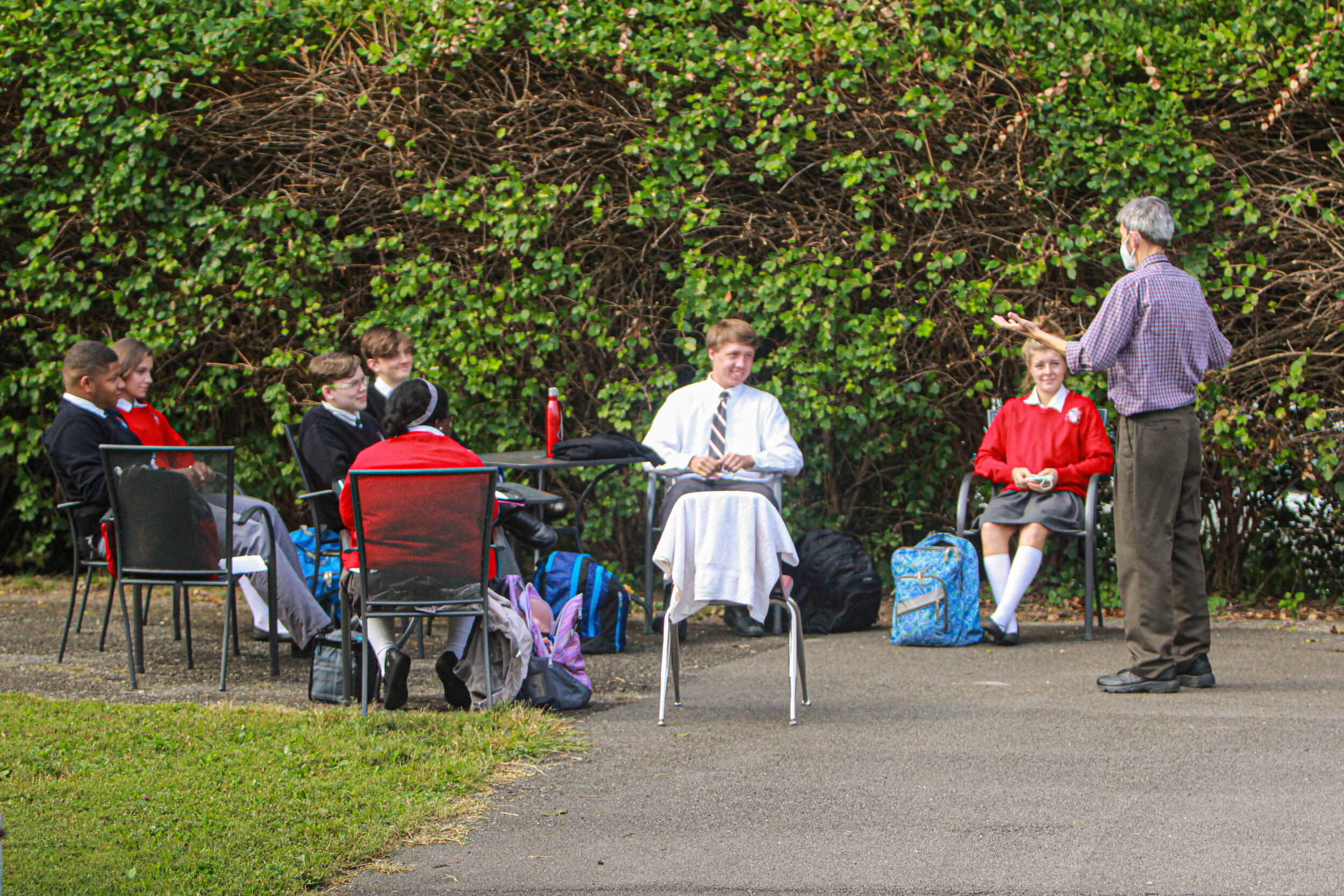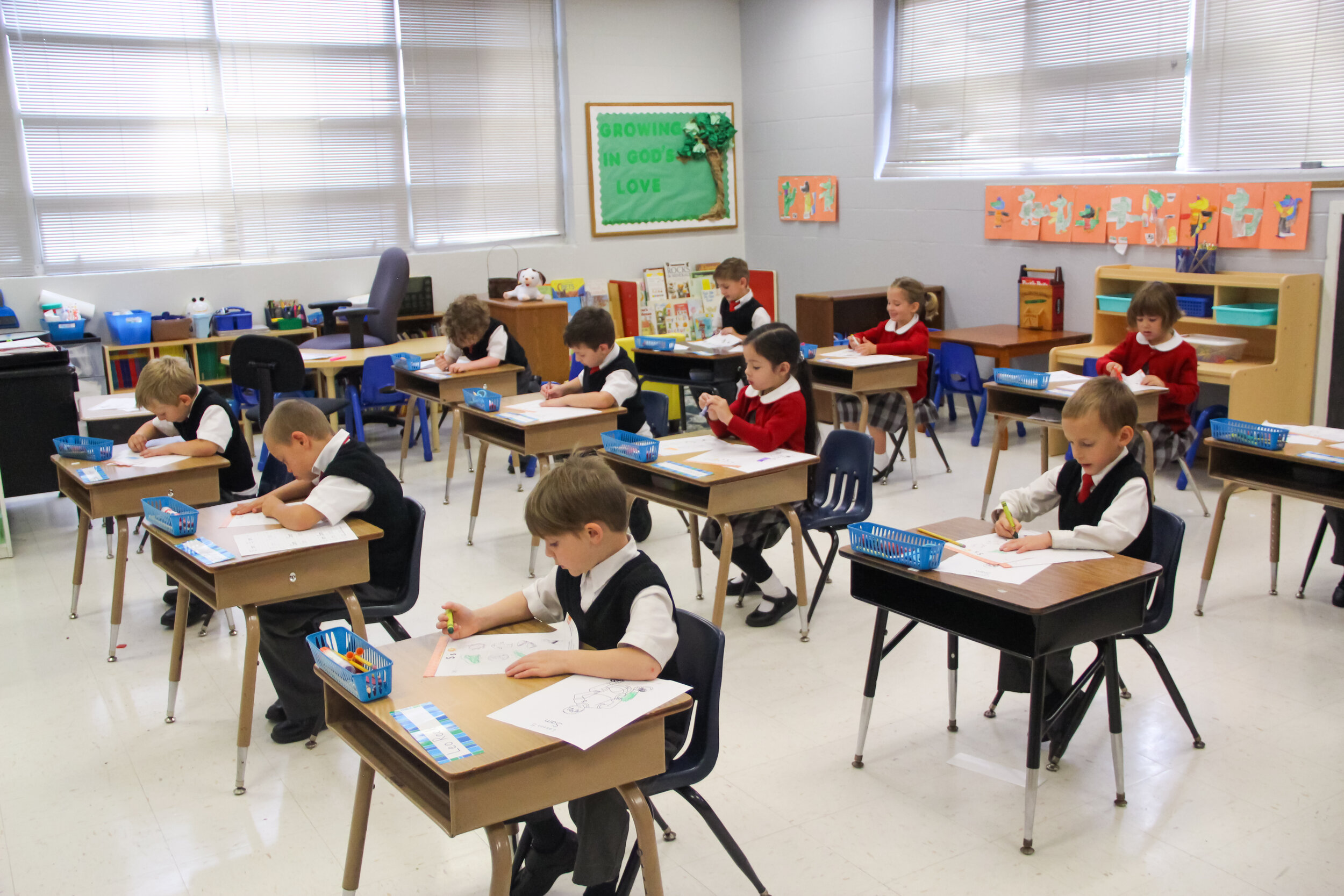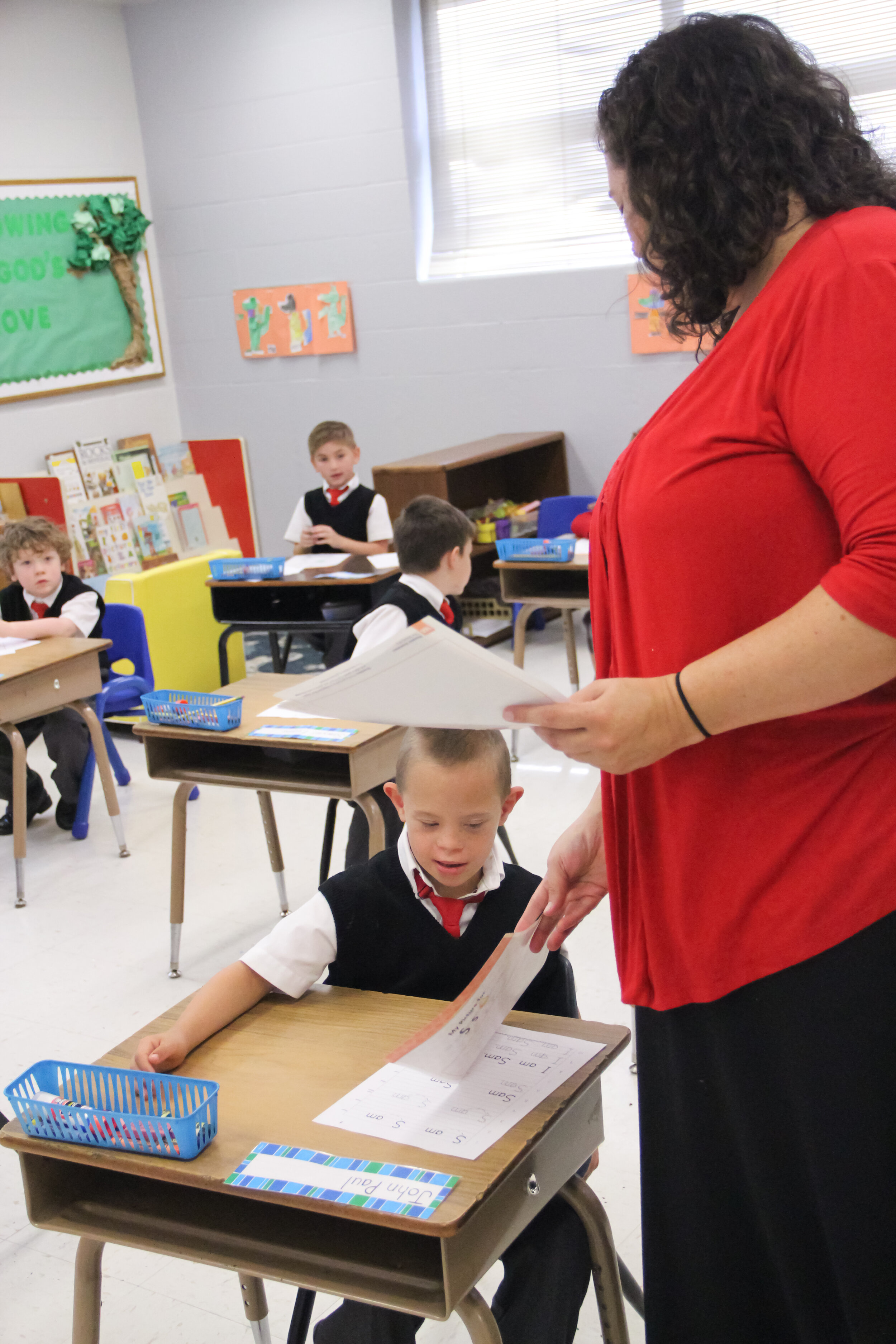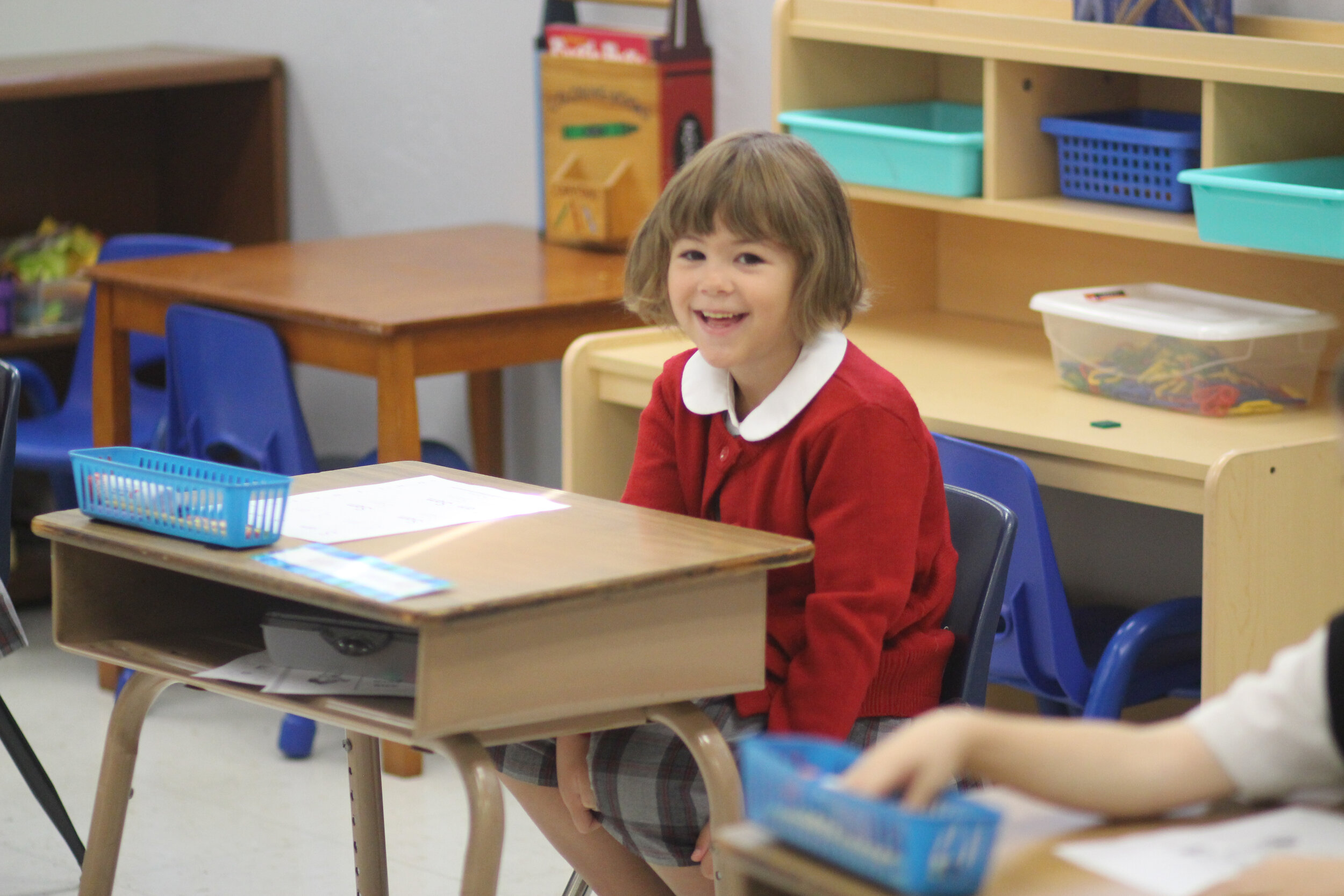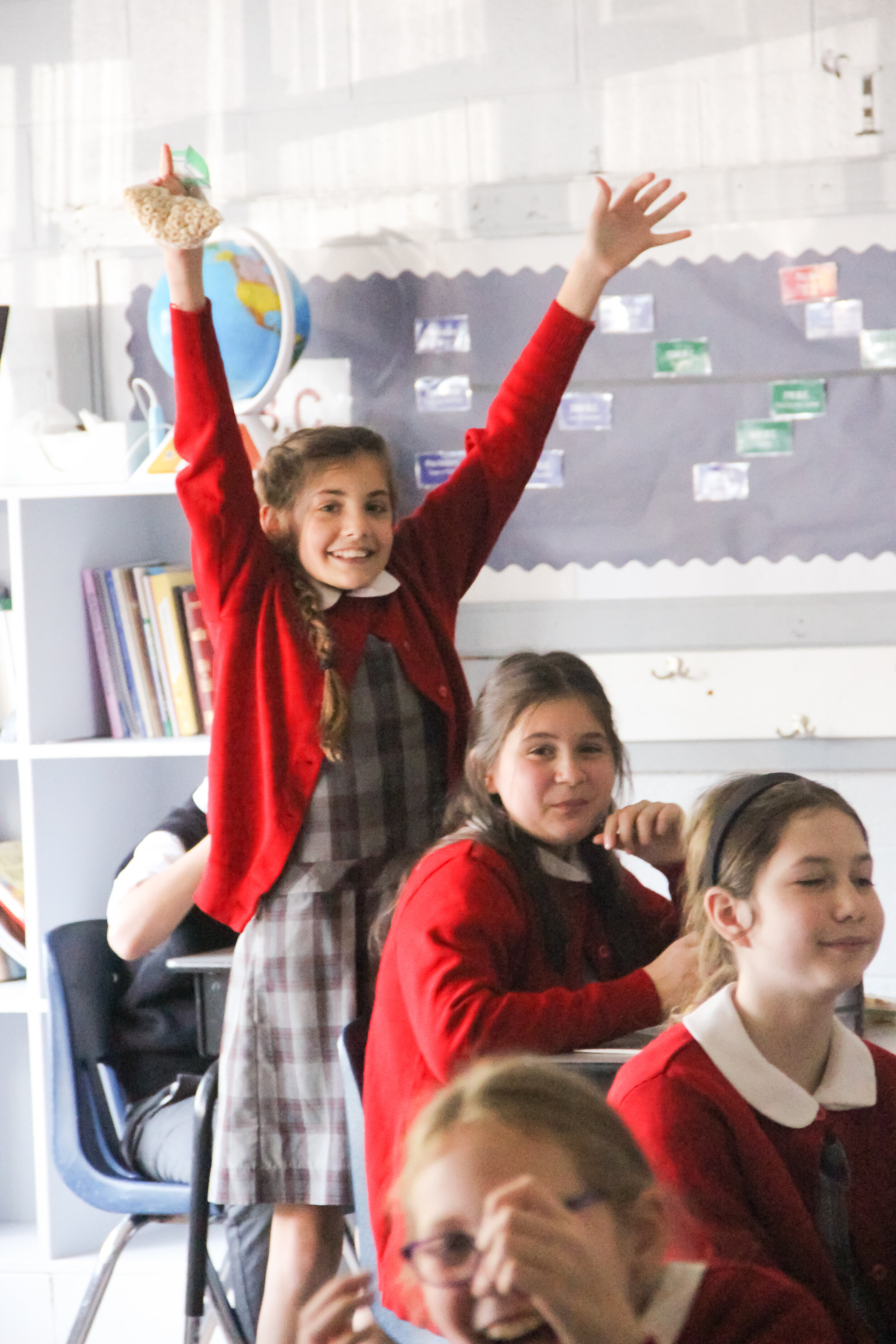By Ruby Thomas, Record Staff Writer
Stephanie Rhodes, a 13-year-old diagnosed with autism and attention deficit hyperactivity disorder, and Elena Michalak, a 9-year-old with Down syndrome, kept pace with their third-grade classmates during choir at Immaculata Classical Academy Oct. 19.
Their classroom — where typical needs and special needs children work and learn together — was the concept upon which
Immaculata was founded in 2010. The independent Catholic school, which grew out of the founders’ Penny and Mike Michalak’s homeschool, was recognized by the Arch-
diocese of Louisville as a Catholic school last year.
It’s mission is to educate all of God’s children, regardless of their abilities.
Children like Stephanie and Elena make up 15 to 20 percent of the school’s student body — 162 students in preschool through high school. The school also serves children who have been diagnosed with Asperger syndrome, Prader-Willi syndrome and severe mental delays, among others. And they are all integrated into regular classes.
Co-founder Penny Michalak said the school’s academic standards remain “very high,” even though it serves special needs children. The goal, she said, is to challenge all the students.
Challenging them, she said, is a simple matter of scheduling at Immaculata: The entire school studies the same subject at the same time of day.
If a child is struggling in a particular subject, whether they have special needs or not, they can easily move down a grade in that subject and work at their own pace, explained Justin Fout, Immaculata’s principal.
Dalphne Rhodes, the mother of 13-year-old Stephanie, said the school is working for her children.
Stephanie’s brothers attend Immaculata, too. Charles is an eighth-grader diagnosed with Asperger syndrome and attention deficit disorder and Chad is a fourth-grader diagnosed with attention deficit disorder. The three enrolled at Immaculata this school year.
“They’ve done an amazing job with Stephanie. I couldn’t be happier,” Rhodes said. “She’s breaking down myths and doing the things people said she couldn’t do.”
Stephanie entered Immaculata at a fourth-grade level, but is already doing mathematics beyond that grade level, said Rhodes, adding that the alignment of the class schedule is “genius.”
“You don’t want your child with special needs to be put aside, you want them in an environment with other kids,” said Rhodes. Stephanie is “excited” to go to school. “There’s been a shift in her” since starting Immaculata. Her sons, too, are settling in and advancing well, she said. Rhodes calls Immaculata an “answer to prayers.”
Ray Klein, said his 12-year-old son Nicholas, who has Down syndrome, is very delayed academically, but was welcomed into Immaculata this year.
Nicholas is battling leukemia and missed all of the last school year due to his illness. He is enrolled in the second-grade at Immaculata this year and is already showing signs of progress.
“He’s excited about learning and being a part of a community. He loves going to school,” said Klein in an interview Oct. 20. “Immaculata is a huge part of his recovery.”
Immaculata’s mission to educate special needs children is “real and sincere,” said Klein. “It’s a ministry they express through education.”
Fout said his “hope and prayer is that other schools will take up the Immaculata method” of teaching special and typical needs students in the same classroom. He said it doesn’t take a lot to do so.
The school’s resource coordinators — Shelley Lampe and Connie Mamie — are integral to the school’s mission, he said. Mamie and Lampe assess students initially to determine their skill levels and needs. Then they develop an individual education plan to guide teachers and parents.
Lampe, who also teaches high school science and middle school math, said during an interview at the school that her days in the classroom are spent helping students “optimize” their class time. If the student is really struggling she or Mamie will work with the child individually in the resource room, she said.
Special needs students are “very capable, but it may take them longer or they may have to repeat a grade,” said Lampe. “The hurry up and move along approach doesn’t work.”
In fact, Mamie said, special needs children can learn anything at a slower pace. She focuses on “meeting the children where they are and taking them as far as we can.” The children she works with are always advancing, she said. They may “stall” at times, but she’s never seen them regress.
Lampe and Mamie agree that it takes a team to make the school successful. It’s like the “unity of the church working as the body of Christ. We’re not sufficient on our own,” said Mamie.
Immaculata also has an unusual weekly schedule —a four-day school week. Students attend classes Tuesday through Friday, which has also played a role in helping them accomplish what they do, said Mamie.
Faculty and staff meet on Mondays to discuss student progress and ways to keep helping them succeed.
Communicating with teachers and parents is also important in learning how to better serve the students, noted Mamie.
“It takes courage and generosity to do what we do,” said Lampke, noting it’s not always easy. “It’s exhausting and you lay awake at night wondering how you can help this child.”
All the children benefit from having special needs students in the classroom, Michalak added. The Michalaks have 16 children — some biological and some adopted — including four with Down syndrome, three of whom are adopted. The couple are concerned that abortion will eventually eliminate children like theirs.
At Immaculata, she said, students learn that “all people are people.” The students interact well together and the typical needs students learn compassion through this interaction, she said.
Having them together in the classroom also helps to “unlock” skills, such as communication, in special needs children. “They’re not people who should be left out. They’re God’s children,” she said.




